LGBT+ History Month 2024
February marks LGBT+ History Month, an annual celebration of the history, achievements and contributions of lesbian, gay, bisexual, transgender, and queer individuals and communities. Liz, Bath Mind’s Diversity and Inclusion Lead, shares more about the month, its importance, and how we can get involved below.
Why is LGBT+ History Month important?
History often misses out on the contributions that have been made by those of us from the LGBTQ+ community, which could wrongly give the impression that LGBTQ+ people have only been around in recent years.
The month is an opportunity to celebrate the innovation that the LGBTQ+ community has created but also to reflect on the history of the LGBTQ+ rights movements. It’s also a great opportunity to educate people about the rich history of LGBTQ+ communities and to promote a culture of inclusivity, eliminate discrimination, and promote LGBTQ+ culture.
What is the difference between Pride Month and LGBTQ+ History Month?
Pride Month, which is celebrated every year in June, is a time for the community to join together (usually at in-person festivals featuring a pride march) to highlight LGBTQ+ causes. The Pride movement was born from the Stonewall riots of 1969 and the early gay liberation movement, and has a strong political drive. It’s different from LGBT+ History Month because it usually focuses on the present and the future of the community, rather than the past.
LGBTQ+ and Mental Health
LGBT+ History Month is also a moment to lift up people’s stories about their mental health. Being LGBTQ+ doesn’t cause mental health problems, but some things you may go through as an LGBTQ+ person can make you more likely to experience mental ill health.
Some things you may go through if you’re LGBTQ+ include homophobia, biphobia and transphobia, experiences of stigma and discrimination, social isolation, exclusion and rejection, and difficulties getting the healthcare you need for reasons such as discrimination, or long waiting lists for gender treatment if you’re trans.
The impact that discrimination and isolation has on the mental health of LGBTQ+ people is clear, and avoidable. That’s why we all need to do more to make sure things change – for the better.
What is the theme of LGBT+ History Month?
This year’s theme (which has been set by Schools OUT) is Medicine – #UnderTheScope. This is an opportunity to celebrate the work and lives of LGBTQ+ healthcare professionals who have made significant contributions to the field of medicine, both historically and in the modern day.
It’s also a time to reflect on the community’s relationship with the world of medicine, such as the history of the AIDS crisis, the medical treatment of trans people and LGBTQ+ people’s contributions to the NHS.
It’s also an important theme because LGBTQ+ people are underrepresented in STEM (science, technology, engineering and mathematics) careers more widely. The campaigning group STEM Women reports that this shortfall could be as much as 20%! Therefore, we are excited to take the opportunity this LGBT+ History Month to highlight some of the unsung LGBT+ heroes of science and medicine, to show young people that there are diverse role models who they can aspire to emulate.
Here are some inspiring LGBTQ+ individuals who worked/work in healthcare and medicine:
Dr Sophia Jex-Blake
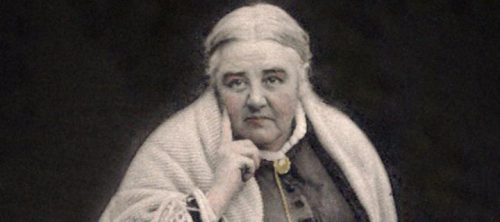 (1840-1912) An English physician, Dr Sophia Jex-Blake was one of the first women to study medicine in the UK, and the first woman to practice medicine in Scotland.
(1840-1912) An English physician, Dr Sophia Jex-Blake was one of the first women to study medicine in the UK, and the first woman to practice medicine in Scotland.
In 1886 she helped open the Edinburgh School of Medicine for Women and it was there she met her life partner Dr Margaret Todd, one of the first students to enrol in the institute. Together they co-wrote several crucial texts arguing in favour of women’s suffrage and women’s importance to the medical field.
Dr Louisa Martindale
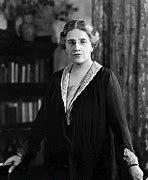 (1872- 1966) Dr Louise Martindale was a physician, surgeon, and writer. She set up a private practice in Brighton and became the first female GP.
(1872- 1966) Dr Louise Martindale was a physician, surgeon, and writer. She set up a private practice in Brighton and became the first female GP.
With a group of other Brighton feminists, Louise developed the New Sussex Hospital for Women, where she was the senior surgeon and physician. Later, she became a specialist in the early treatment of cervical cancer and was awarded the CBE in 1931.
Louisa lived with her partner Ismay FitzGerald for three decades and wrote of her love for her in her autobiography, A Woman Surgeon.
Martha Carey Thomas
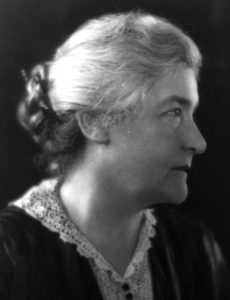 (1857 – 1935) Martha Carey Thomas was the first woman president of Bryn Mawr College. Martha also created the world famous medical college at John Hopkins on the condition that women be admitted to study.
(1857 – 1935) Martha Carey Thomas was the first woman president of Bryn Mawr College. Martha also created the world famous medical college at John Hopkins on the condition that women be admitted to study.
Her relationships with both Mary Garrett and English professor Mamie Gwin provided the inspiration for lesbian author Gertrude Stein’s bisexual story Fernhurst, published in 1904.
Dr Alice Hamilton
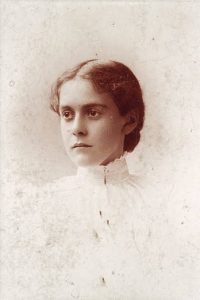 (1869 – 1970) Born in America, Dr Alice Hamilton is famous for founding occupational medicine and was the first woman appointed to the faculty of Harvard University.
(1869 – 1970) Born in America, Dr Alice Hamilton is famous for founding occupational medicine and was the first woman appointed to the faculty of Harvard University.
Accepted today as someone who identified as lesbian, Alice battled the resistance to women in medicine and helped pioneer the study of harmful industrial toxins.
Cecil Belfield Clarke
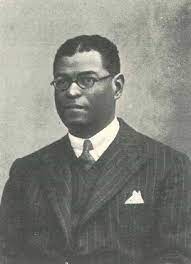 (1894 – 1970) Born in Barbados, Cecil Belfield Clarke won a scholarship to study natural science at the University of Cambridge, and then studied medicine in London, and opened a medical practice in Elephant & Castle.
(1894 – 1970) Born in Barbados, Cecil Belfield Clarke won a scholarship to study natural science at the University of Cambridge, and then studied medicine in London, and opened a medical practice in Elephant & Castle.
He lived with hi lifelong partner, Pat Walker. In the 1930s he become a District Medical Officer and was the only black man to hold this post in London County Council at the time.
Michael Dillon
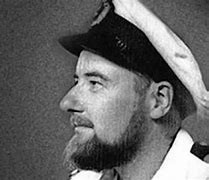 (1915 – 1962) Michael Dillon, a British physician and author, was the first trans man known to have undergone gender confirmation surgery. In 1946 Dillon wrote ‘Self: A Study in Ethics and Endocrinology’ which is considered a pioneering work in the field of transgender medicine.
(1915 – 1962) Michael Dillon, a British physician and author, was the first trans man known to have undergone gender confirmation surgery. In 1946 Dillon wrote ‘Self: A Study in Ethics and Endocrinology’ which is considered a pioneering work in the field of transgender medicine.
George Ward/Cherry Valentine
 (1993 – 2022) George Ward was a mental health nurse more widely known for their drag stage name, Cherry Valentine. They competed in the second series of the television show RuPaul’s Drag Race UK and are credited with being the first contestant from the English traveller community.
(1993 – 2022) George Ward was a mental health nurse more widely known for their drag stage name, Cherry Valentine. They competed in the second series of the television show RuPaul’s Drag Race UK and are credited with being the first contestant from the English traveller community.
During the pandemic, George went back to working as mental health nurse.
Kevin Fenton
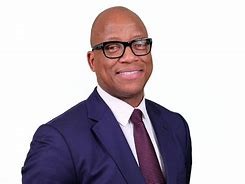 (1966 – present) Professor Kevin Fenton is a senior public health expert and infectious disease epidemiologist.
(1966 – present) Professor Kevin Fenton is a senior public health expert and infectious disease epidemiologist.
In 2020, Fenton focused on supporting people of colour in communities affected by the pandemic which led to recommendations which shaped a more equitable COVID-19 pandemic response. This work was recognised with Fenton ranking second in the 2021 edition of the annual Power List of the most influential Black Britons.
In December 2021, Professor Fenton was appointed Chief Advisor on HIV to the Government.
Fenton was also appointed Commander of the Order of the British Empire (CBE) in the 2022 New Year Honours for services to public health.
How can we engage with LGBTQ+ History Month?
- Educate yourself and those around you. Read books, articles, and watch documentaries that explore the history and experiences of the LGBTQ+ community.
- Attend Events. Look for local or online events and activities related to LGBTQ+ History Month. These could include lectures, panel discussions, film screenings, art exhibitions, or community gatherings.
- Support LGBTQ+ Organisations. Consider supporting LGBTQ+ organisations and non-profits that work towards advocacy, education, and support for the community. Donations, volunteering, or participating in their events can make a positive impact.
- Support LGBTQ+ Businesses. Choose to support LGBTQ+ owned businesses during the month (and beyond!). This could include restaurants, shops, or service providers.
Where can we find out more?
Below we list some useful and inspiring books we hope will help!
Inspiring and Informative LGBT+ History Books
This is a collection of books, shared by The Proud Trust, which touch on themes of healthcare, biology and medicine from an LGBT+ perspective.
Important note: Due to the nature of many of these histories, these books are not suitable for all ages. If you are an adult who is thinking of giving any of these books to a young person, you may wish to review them yourself first.
- And the Band Played On: Politics, People, and the AIDS Epidemic, br Randy Shilts
- Between Certain Death and a Possible Future: Queer Writing on Growing up with the AIDS Crisis, by Mattilda Bernstein Sycamore
- Bodies and Barriers: Queer Activists on Health, edited by Adrian Shanker
- Crisis And Care: Queer Activist Responses to a Global Pandemic, edited by Adrian Shanker
- Evolution’s Rainbow: Diversity, Gender, and Sexuality in Nature and People, by Joan Roughgarden
- How to Survive a Plague: The Story of How Activists and Scientists Tamed AIDS, by David France
- Moving Politics: Emotion and ACT UP’s Fight against AIDS, by Deborah B Gould
- Patient Zero and the Making of the AIDS Epidemic, by Richard A.McKay
- Plague Years: A doctor’s journey through the AIDS crisis, by Ross A. Slotten, M.D.
- Testosterone: The Story of the Hormone that Dominates and Divides Us, by Carole Hooven
- The Other Pandemic: An AIDS Memoir Book, by Lynn Curlee
- The Remedy: Queer and Trans Voices in Health and Health Care, edited by Zena Sharman
- Trans America: A Counter-History, by Barry Reay
- Transgender History (Second Edition): The Roots of Today’s Revolution, by Susan Stryker
- Trans Medicine: The Emergence and Practice of Treating Gender, by Stef M. Shuster
- What Is the AIDS Crisis?, by Nico Medina
- ‘Curing Queers’: Mental nurses and their patients, 1935-1975, by Tommy Dickinson
Sources
Sources:
- LGBT+ History Month LGBT+ History Month
- Stonewall LGBT+ History Month 2024 | Stonewall
- The Proud Trust LGBT+ History Month: Everything You Need to Know – The Proud Trust
- BBC Bitesize The evolution of LGBT+ History Month – BBC Bitesize
- Inclusive Employers LGBT+ History Month in the Workplace – Inclusive Employers
Posted on: 29th January 2024
